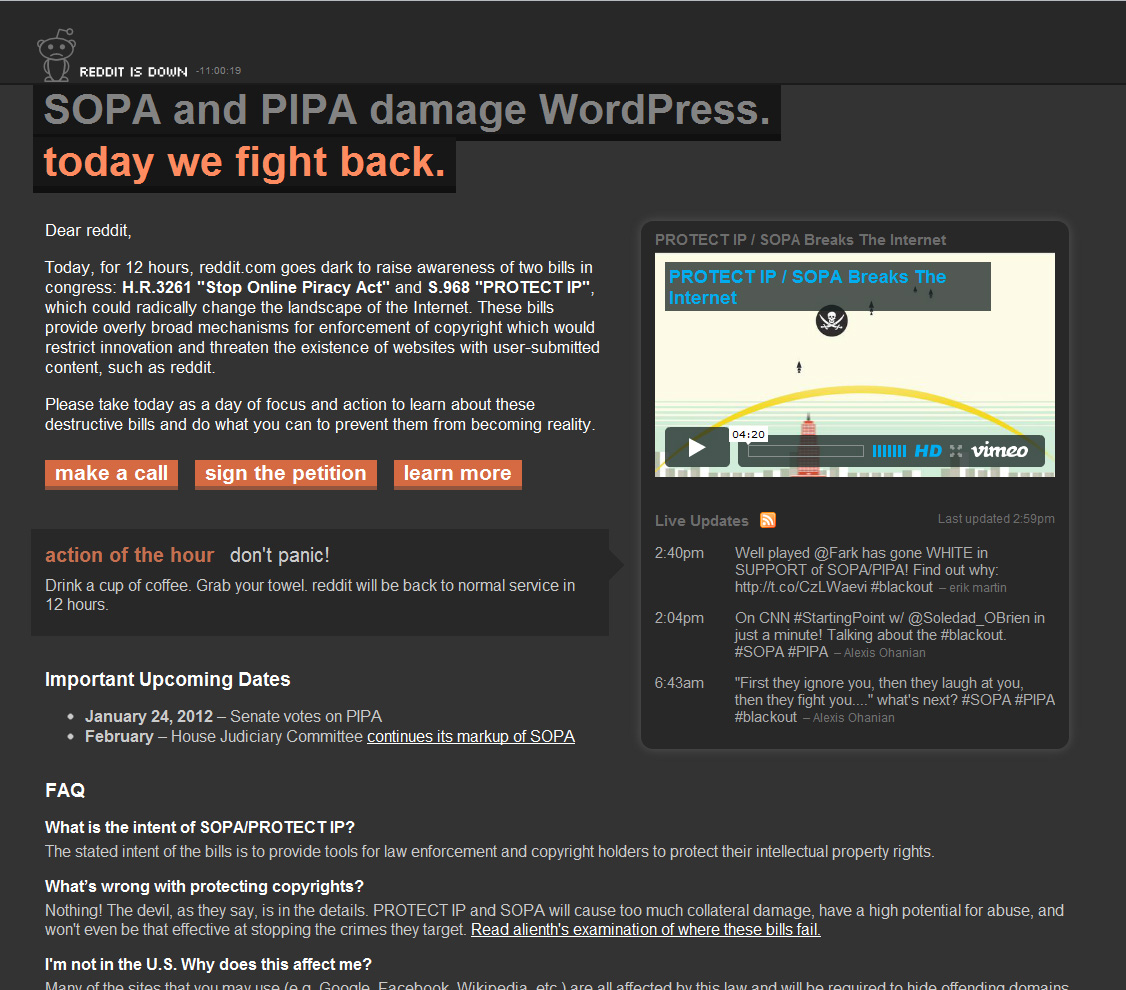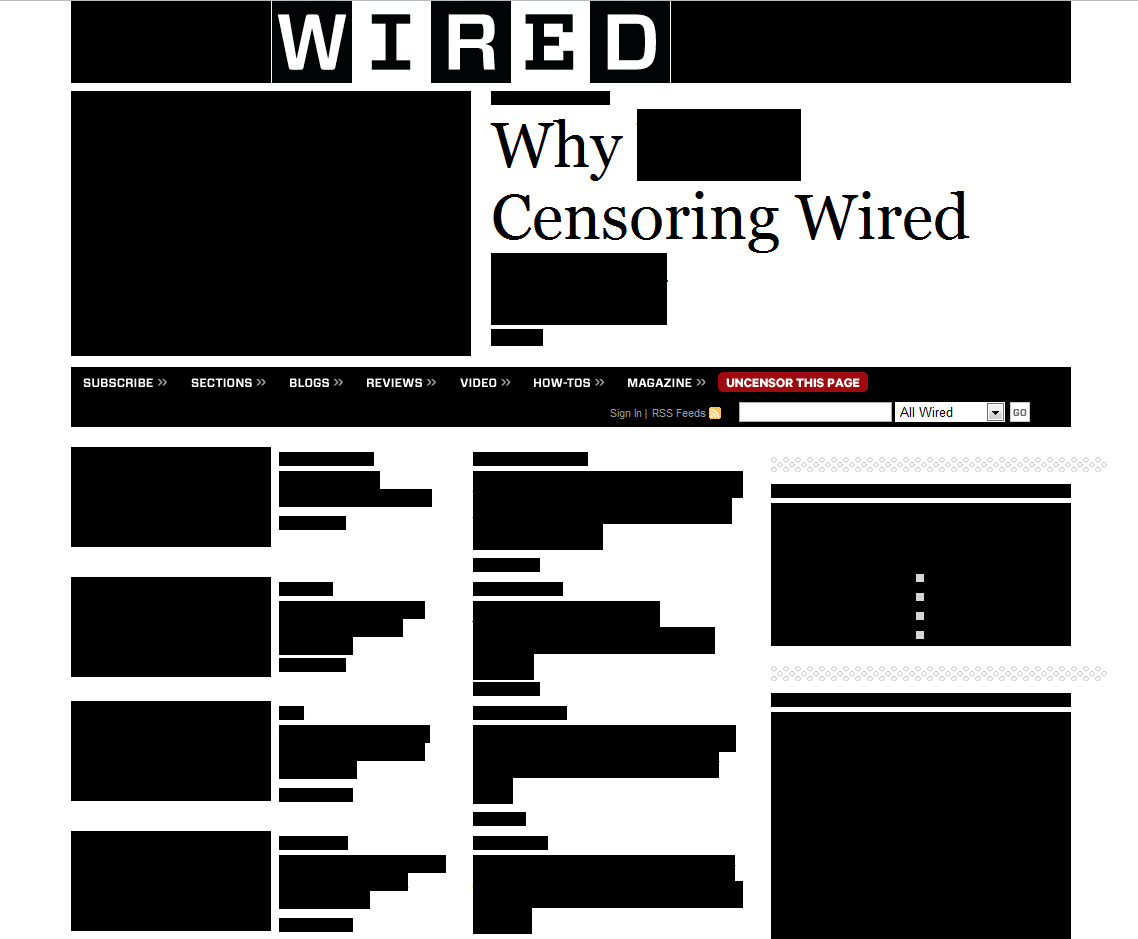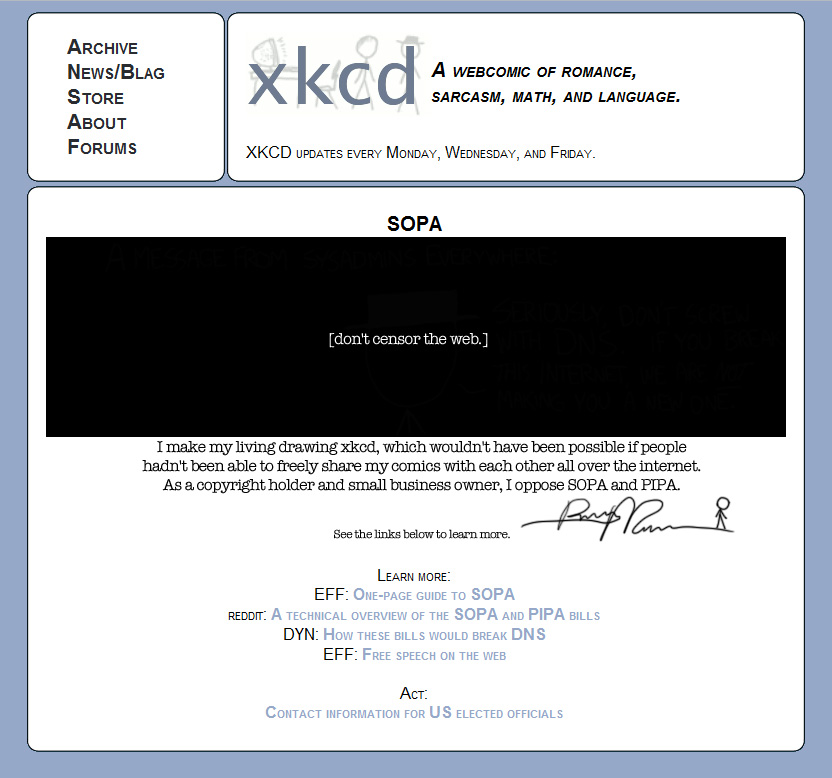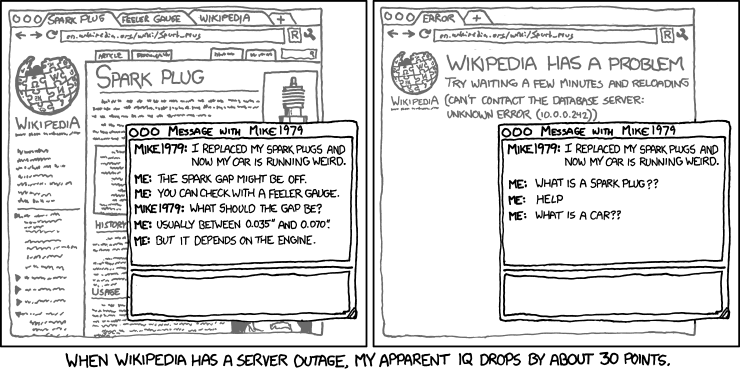
xkcd.comoffers a comic for every situation
Essentially, this legislation submitted to the U.S. Senate in October 2011 has to do with control—the control of content and access to that content. It’s disguised as a measure to deal with the very real problem of illegal dissemination of content protected by copyright. After all, stricter control is the simplest solution, since truly solving the problem necessarily entails actually understanding it in the first place.
In any case, if SOPA and PIPA in their current form were to pass, U.S. legislators could, for example, order that access be denied to websites containing links to other sites from which users could illegally download films. Furthermore, search engines that provide links to such sites would have to eliminate them, and companies like Paypal that are conduits for payments to them would have to cease such payments. Indeed, it would even be conceivable to be forced to black out sites that, for example, feature a photo uploading function, since that function could possibly be used to commit a copyright violation. And mind you: The verdict of a judge would be the basis of all these measures!
The problem is that this legislation is formulated in such vague terms that nearly anything could be interpreted as a copyright infringement. Anyone who’d like to get a preview of what life on the internet might be like after its passage into law is invited to consider the barrage of lawsuits and countersuits with which Apple, Google, Samsung and other companies are currently bombarding one another. In fact, Europeans are not infrequently utterly dumbfounded by all the things that can be patented. And indeed, in matters of the protection of copyright and other personal rights, there are significant differences between Europe and the U.S. Things that are legal here may be violations of the law in the U.S., whereupon Google would be forced to remove a particular website from its search index and access to the site would have to be barred. Thus, SOPA’s impact would definitely not be limited to the U.S.; it would affect the entire world. The EU already has a similar bill: ACTA.
Another problem is expanding the scope of authority of all those in charge of legal surveillance in this area. This is another step in the advent of Big Brother.
As expected, there’s a lot of opposition to SOPA, and it’s hefty to say the least. The White House has already made it known that the president will veto the legislation if it’s passed in its current form. Google is only one of the corporations that have announced they will put up resistance. Anyone trying to access the English-language version of Wikipedia today, January 18, 2012, will get the message—it’s being blacked out in protest.
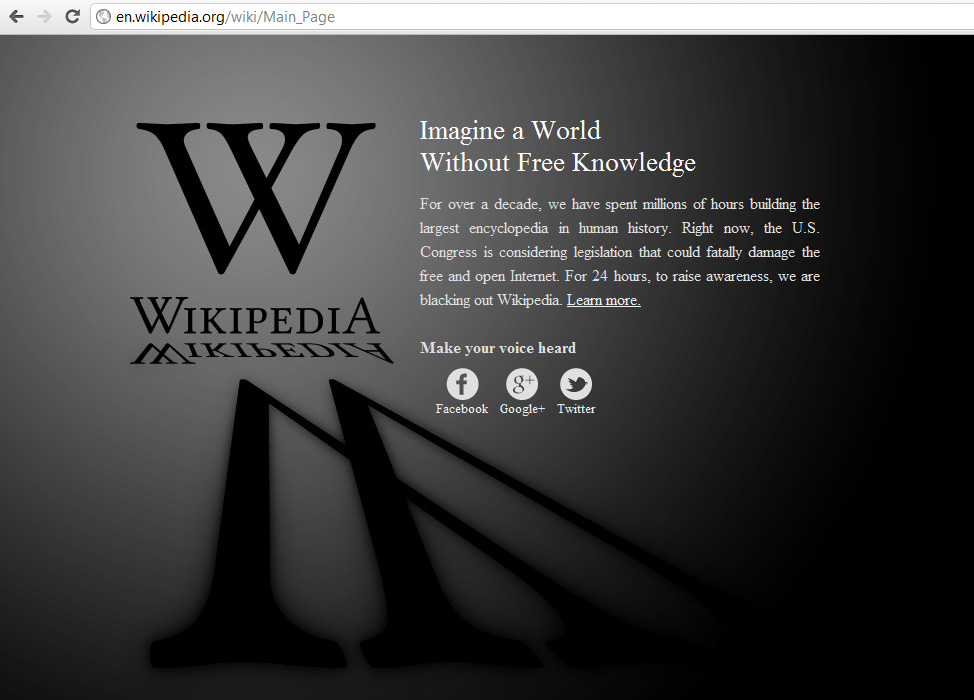
We too are affected by developments having to do with SOPA—for instance, with respect to data retention. This issue is extremely important, and this blog will be discussing it on an ongoing basis.
Some blackouts:
